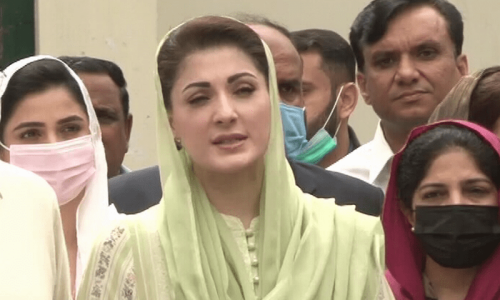ISLAMABAD: Although Saudi Arabia had declared polio vaccination for Pakistanis mandatory in 2009, India has become the first country to implement the ban on travelers who were not immunised as recommended by the Independent Monitoring Board (IMB) for Polio Eradication in October 2011.
Pakistani travelers will not be allowed to enter India after January 30, 2014 if they have not been administered Oral Polio Vaccination (OPV) at least six weeks prior to their departure for India.
However, since the vaccination is effective for only one year, the OPV certificate should not be more than one year old, the Indian government has stated.
An official of the Indian Embassy, requesting anonymity, said this was a decision made by the Indian government and had to be strictly implemented.
“Any Pakistani wishing to travel to India has to provide a certificate of vaccination as we want to keep the Indian nation safe from the crippling disease,” he said.
Country Director World Health Organisation (WHO) Dr Nema Abid told Dawn that India had declared the traveling ban on the recommendations of IMB.
“In January 2014, IMB will hold a meeting in which 23 countries will participate and may take a collective decision. WHO wants to ensure that polio does not spread to other countries from Pakistan,” he said.
It is pertinent to mention that the Pakistani polio virus has already affected at least five countries in the past 23 months, and has become a threat to other countries as well.
Even the European health journal, The Lancet Medical Journal, has warned that the Pakistani polio virus could become a threat to Europe.
In January 2012, 21 children in a Chinese province were affected by polio, and it was confirmed that the virus strain had been transmitted from Pakistan after its DNA was analysed.
In December 2012, the same virus was detected in Al Azhar University, Egypt. In March 2013, the virus was then recorded in Palestine, and three months later, the same strain was detected in Israel.
In October 2013, Unicef confirmed that the virus had also been transmitted to Syria from Pakistan.
Therefore, on Wednesday, the High Commission of India issued a press release stating that all adults and children traveling to India from Pakistan after January 30, 2014 were required to obtain OPV at least six weeks prior to their departure.
“Travelers from Pakistan to India after January 30, 2014 are required to carry their vaccination record as evidence of polio vaccination,” a press release issued by the commission stated.
Furthermore, it said that the OPV certificate could be obtained from any WHO authorised medical centre in Pakistan.
“Once administered, OPV remains effective for one year after which the vaccination should be taken again. The step is being taken to safeguard India’s polio-free status attained after large efforts and investment,” the press release said.
The ban will be applicable on all travelers from countries where polio was endemic or where cases of polio were reported. It will also be applicable to Indian nationals traveling from these countries.
An official of the Ministry of National Health Services, on condition of anonymity, said there was chance that several countries would ban the traveling of Pakistanis.
He said this would not only affect the whole nation but also the millions of Pakistanis who are working abroad and sending foreign exchange.
“Saudi Arabia has already made it mandatory for every Pakistani, whether a child or adult, to receive OPV after entering Saudi Arabia. Traveling of Pakistanis may be permanently banned if we do not take effective steps to eradicate polio from the country,” he said.
Minister of National Health Services Saira Afzal Tarar, while talking to Dawn, said Pakistan had to focus on preventing the spread of polio.
“Several countries, including India, are concerned about the alarming situation in Pakistan. The polio virus can travel out of the country just like it reached Syria, so the countries want to ensure that the virus does not reach their borders,” she said.
“Every country has the right to protect its population from such diseases. Even Pakistan faces threat of malaria which spreads into the country from Iran and Afghanistan, and time and again, we have taken up this issue with both countries,” she said.
The minister said she had proposed a firewall so that every person coming from the Federally Administered Tribal Areas (Fata), from where the strain is believed to have originated, was vaccinated.
“Unfortunately some people believe the polio vaccine is forbidden in Islam, so they do not vaccinate their children. The ministry has been striving to change this mindset,” she said.














































